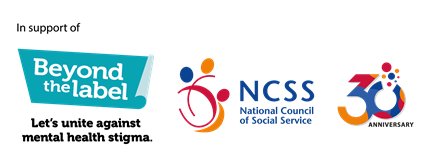Interviewers' Guide: What to do if a Job Candidate Discloses a Mental Health Condition
3 simple steps that interviewers can take to handle job candidates’ self-disclosure of a mental health condition with respect and sensitivity.
14 Jun 2022 Articles Best practices

When a job candidate discloses a mental health condition at the interview stage, it is important that interviewers know how to navigate the conversation appropriately, to avoid being discriminatory or disrespectful.
Here are 3 simple steps that interviewers can take to ensure they exercise respect and sensitivity when communicating with job candidates who bring up a mental health condition during job interviews.
Thank the job candidate for their openness and honesty
It takes a lot of courage and trust to talk about one’s mental health condition due to the stigma associated with these conditions. How interviewers respond is therefore critical and can represent an organisation’s attitude towards hiring persons with mental health conditions and speak volumes about whether they are a fair and inclusive organisation.
As the ambassador of the organisation, let the candidate know that you appreciate their openness and honesty regarding their disclosure and assure them that the interview would focus on drawing out their abilities to do the job.
Tip(s):
- Avoid over-reacting and making insensitive comments or posing questions such as: “You don’t look like you have (mental health condition).”, “How did you get (mental health condition)?” and “What happens when you relapse?”, etc.
Be clear and upfront about the job descriptions and expectations including the working environment and potential stressors, and focus on how the candidate can do the job
It is important to reserve one’s judgments and not to disregard a candidate’s application based on their disclosure. Treat them with the same respect and hold them to the same standards as all candidates.
Make your expectations clear and allow the candidate to share how they had or would perform the tasks required for the position they applied for, and listen attentively for evidence of their abilities.
If the candidate discloses their condition only at the end of the interview, thank them and ask if they need any accommodation or adjustment to do the job.
Tip(s):
- Avoid asking questions directly related to the candidate’s mental health condition or make assumptions about them and their abilities due to their condition. For example: “Will you be violent?” and “You have (mental health condition), can you do this job?”, etc.
- To assess candidate’s skills and abilities objectively, frame the questions directly related to the selection criteria that is applied consistently to all candidates using techniques such as competency-based questions.
Share about your organisation’s inclusive workplace culture. Do not deny request for reasonable accommodations or adjustments immediately, and avoid overpromising
If workplace accommodations and adjustments (e.g. flexible working hours, Employee Assistance Programme and wellness ambassadors) are available, interviewers could state them. This helps to communicate the organisation’s commitment to hire persons with mental health conditions (and any other disabilities) and encourage candidates to share if they need any accommodations.
Otherwise, interviewers could check with the candidate and take the lead from them. When in doubt if the candidate’s request is possible, be sincere and let the candidate know that you need to check on their request first, and this can be discussed further at the second round of interview or after they are selected.
During the conversation on workplace accommodations and adjustments, help the candidate to understand the organisation’s considerations and reasons why if their request cannot be met (e.g., the accommodation/adjustment will incur excessive costs, it does not assist them in performing the essential functions of the job or will fundamentally change the nature or operation of the business, etc.), and to explore other options with them. To offer more timely and direct support for the selected candidate, the hiring manager could seek the candidate’s permission to share their condition with their direct supervisor.
Tip(s):
- Avoid offering help to the candidate without considering their needs or asking them first as not all persons with mental health conditions need accommodations to do the job. Some candidates may choose to disclose their condition during interview to bring their true self to potential employers.
For more resources on how to conduct interviews in a non-discriminatory and respectful manner, visit tafep.sg.
Note: In general, employers should exercise care and diligence in collecting sensitive and/or personal information and must be able to communicate why the information may be necessary as part of their evaluation of the candidate’s potential success in the job.
In addition to avoiding asking discriminatory questions by having a list of interview questions that is directly related to the selection criteria and applying them consistently to all candidates, review your job application form to ensure that each field is relevant to the job (e.g. skills, qualification and experience). Organisations should not ask job applicants to declare personal information such as their mental health condition unless there is a job related requirement. If you require information that may be viewed as discriminatory, state your reasons clearly why you are collecting the information.
This article was developed by TAFEP in partnership with the National Council of Social Service.

